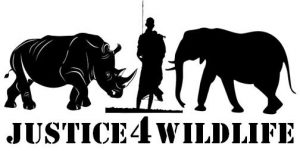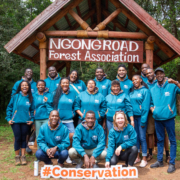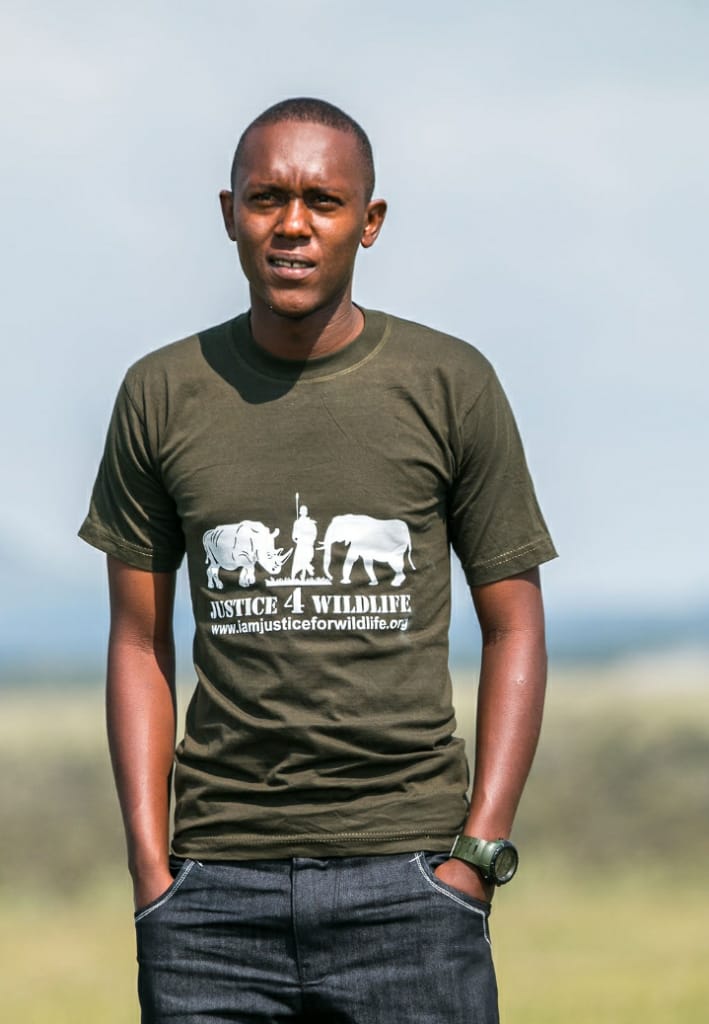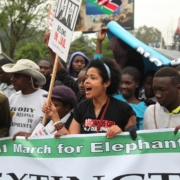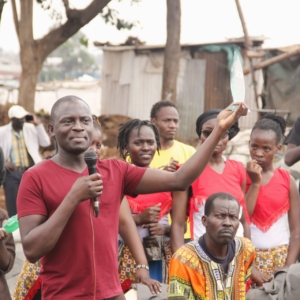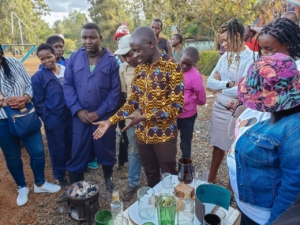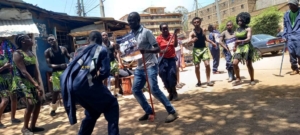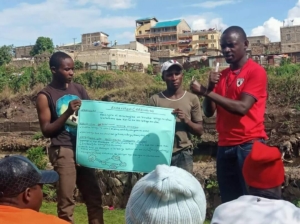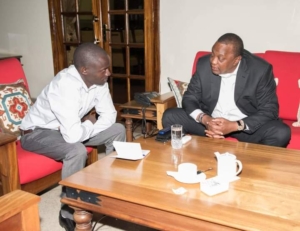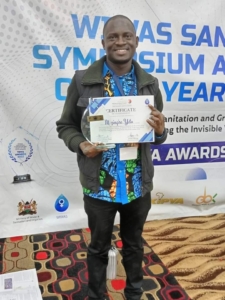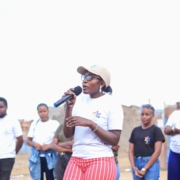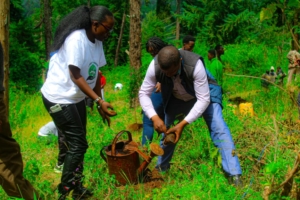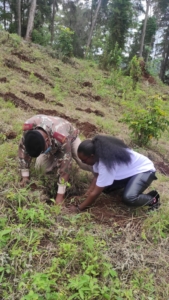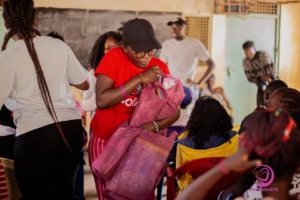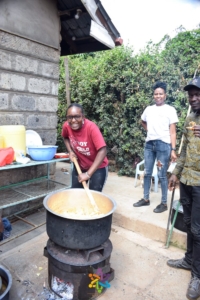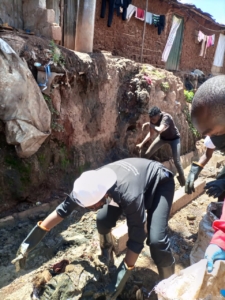The first time I saw the call for applications for the program I was intrigued and couldn’t decide on which of the two programs leadership and management or policy and governance would be my perfect fit but after going through the document I finally decided on applying for the conservation leadership fellowship.
After an intense interview after being shortlisted, I got the good news my application had been successful and my journey began.
The objective of the program is to build a generation of young professionals in Africa who have leadership and
management skills to lead and influence systemic change in the environmental sector and are grounded in the African context and realities when it comes to environmental
matters.
Each pillar has its learning objectives and topics that have been identified to help in building the knowledge and skills gaps being addressed by the program.
Delivery Methodology
The structured program combines well-thought-out blended learning methodologies to deliver the programmatic and learning objectives.
Throughout the 9 months, participants will undergo scheduled training on conservation concepts, leadership, and management development.
All virtual sessions last between 1 and 3 hours each and take place between 5 pm-8 pm EAT.
From 11th to 17th June 2023 all the participants converged in Nairobi for the commencement of the deep dive phase for in-person Courses on self-leadership, leading purpose-driven teams and organizational leadership
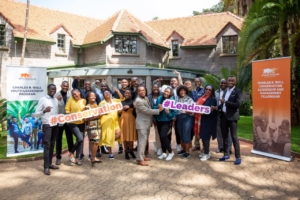
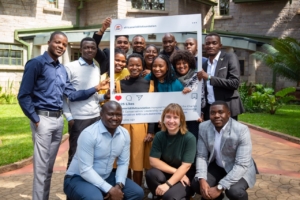
Tailor-made to equip with knowledge, skills, and tools that will elevate the leadership and management game from 1.0 to 2.0 The sessions will help build an understanding of personal values, strengths, purpose, vision, personality, and how these connect to the professional world so that one can maximize on impact.
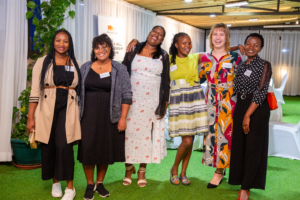
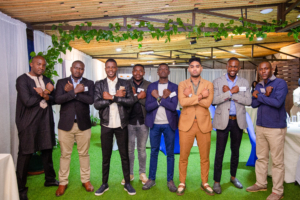
The in-person training commenced with a one-on-one session with Frederick Kumah Vice President of, the Global Leadership team AWF. The highlight being having an opportunity to sit with him and ask any questions regarding his experience and how we can cross the hurdles as young conservationists in our different backgrounds and become catalysts of change.
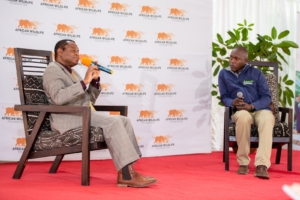
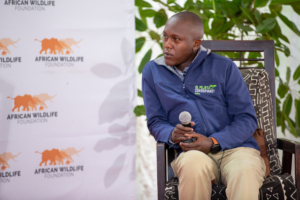
The program is designed to impart participants with cutting-edge knowledge, skills, and expertise in conservation, leadership, and management that will equip them to lead systemic change in the environment space. The program content is categorized into four pillars; Foundational course on conservation, Self leadership, Leading purpose-driven teams and Organizational leadership.
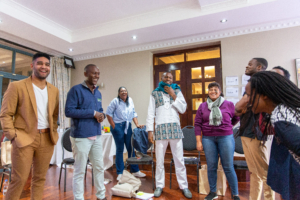
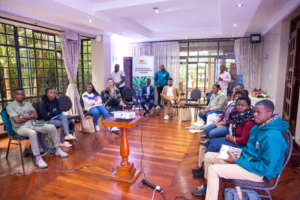
The class sessions were structured in a very engaging manner with loads of group work assignments and tasks which require one to “think out of the box” and not be compelled to conventional ways of doing things, focused group discussions embraced pan Africanism learning from each other in contemporary issues regarding conservation in the continent sharing practical examples on lessons learned in the various programs and projects the participants are working on in their home countries
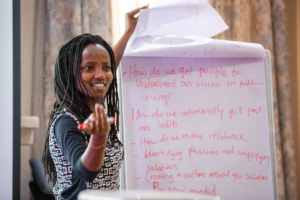
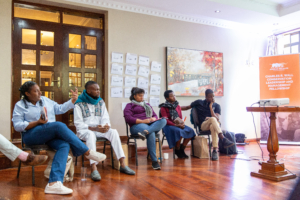
This program is AWF’s acknowledgment of how the spaces of conservation and environmental sustainability are changing rapidly, requiring open-minded and resilient individuals who can lead systemic change. The program intends to foster collaboration across the continent, as the 2023 cohort brings together fellows from 12 African countries from West, Central, Eastern, and Southern Africa. Countries represented in this cohort include Cabo Verde, Benin, Cameroon, Central Africa Republic, Kenya, Rwanda, Uganda, Democratic Republic of Congo, Mauritius, Zimbabwe, Namibia, and South Africa.
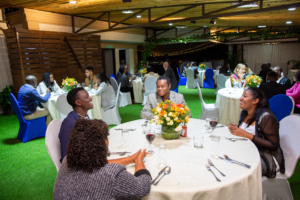
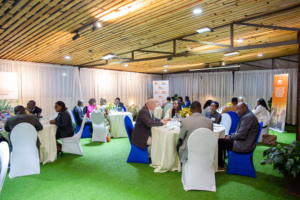
Conservaion Leadership training is no complete without mentorship this program is all about that, learning from conservation practitioners to learn about their journey and get to ask questions one would not easily get a platform to ask from this top professionals.
If youre an early or mid career conservationist, I highly recommend you consider applying for the programme which is a well thought initiative with a key focus on self-leadership, team leadership, and organizational leadership, the fellowship brings together young African professionals from business, NGOs, the public sector, and community-based entities that are leading impact in the environment space. Charles R. Wall Conservation Leadership and Management Fellowship will impart you with transformational leadership and management skills needed to lead systemic impact in environmental issues.
Keep following @awf on all socials be updated on realtime opportunities.
“For most of history, man has had to fight nature to survive. In this century he has to realize that in order to survive he has to protect it.” Jacques-Yves Cousteau Here we celebrate the unsung wildlife heroes in the grassroots doing remarkable work to conserve our wildlife heritage, Get to learn about wildlife from a ranger/ ecologist in Kenya a freelance eco-traveler, experience the diverse cultures and African heritage from the natives and take an adventure to new destinations to learn about rare attractions that are hardly talked about and to top it all up some of the best wildlife photographs that will make you reconnect to your wild side appreciate everything around us and fall in love with the natural world, because “It is not enough to love the natural world; the point is to defend and preserve it.” Edward Abbey
Our wildlife, our responsibility. When it comes to standing up for our wildlife it’s better to be outspoken than unspoken.
